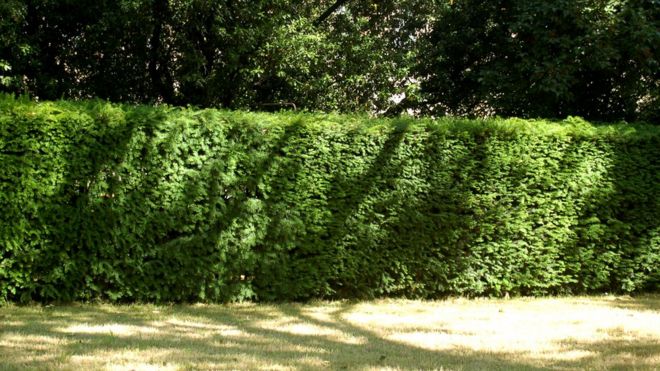Futures Forum: Devonshire hedgerows: Increasing the value of hedges for wildlife with relaxed cutting regimes
Hedges are also very valuable for the urban landscape:
As protection against flooding:
Futures Forum: The decline of the British front garden: "There's an environmental cost. Paving increases the risk of flash flooding - instead of grass and soil soaking up moisture, it runs straight off paving and overwhelms drainage systems."
Futures Forum: Reducing flooding by planting trees and hedgerows
As a haven for wildlife:
Futures Forum: Gardens as nature reserves: “Our message to all garden owners is to see your outdoor space as a small-scale nature reserve – part of a network of gardens that link to make a great big, valuable habitat."
As a piece of the country in the town:
Futures Forum: Fences: a sign of creeping urbanisation > plant more hedges
A new study looks at the issue of pollution:
Cities need to 'green up' to reduce impact of air pollution: The harmful impact of urban air pollution could be combated by strategically placing low hedges along roads in a built-up environment of cities instead of taller trees, a new study has found -- ScienceDaily
And this has been very much covered by the mainstream press:
Experts urge cities to plant hedges to remove pollution | Daily Mail Online
The humble hedge can save the city from pollution - Emma Robertshaw | London Evening Standard
Here is the piece from the BBC:
Cities need 'hedges as well as trees' for environment

Hedges are often better than trees at soaking up air pollution among tall buildings, research has suggested.
A paper in the journal Atmospheric Environment says tall trees are good at absorbing pollution in more open areas. But hedges can trap toxins at exhaust pipe level, so reduce people's direct exposure to harmful pollutants.
Lead author Prof Prashant Kumar said councils should try to plant low hedges between pedestrians and the street if pavements are wide enough. He and his partners in the EU and US are still researching the best pollution-busting plants, and the optimum height for the hedge.
But any gardener in a major city who has trimmed a privet hedge, for instance, will attest that it is full of dust and pollutants that the tight-knit foliage has filtered from the air.
Neglected role
The authors of the report are not anti-trees - far from it. They say trees help clean the air, and many more should be planted as people worldwide flood into cities.
But they say the role of the hedge has been neglected, especially in city "canyons" where tall trees can in some circumstances trap pollution at street level. There is, they insist, no hard and fast rule about the best planting for any given area - it will depend upon local conditions.
Dr Kumar, of Surrey University, told BBC News: "The big thing about hedges is that they are right down at tailpipe level. The emissions from vehicles starts to dilute very quickly as you move away from the road - so any hedge that acts as a barrier slowing down the airflow and catching pollutants on the leaves is going to offer people in homes better protection."
The paper comes as cash-strapped councils round the UK are starting to charge households for collecting green waste. If this policy prompts people to remove their hedges to avoid the charges, it seems that the neighbourhood may suffer.
Cities need 'hedges as well as trees' for environment - BBC News
Atmospheric Environment - Journal - Elsevier
.
.
.

No comments:
Post a Comment